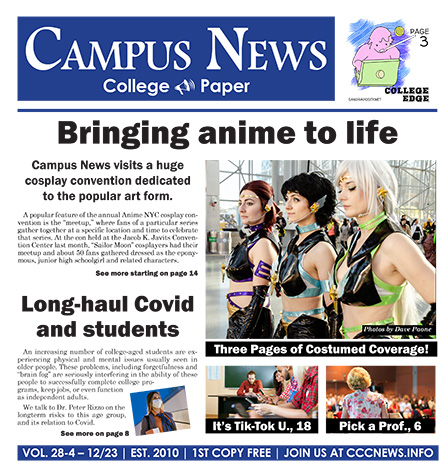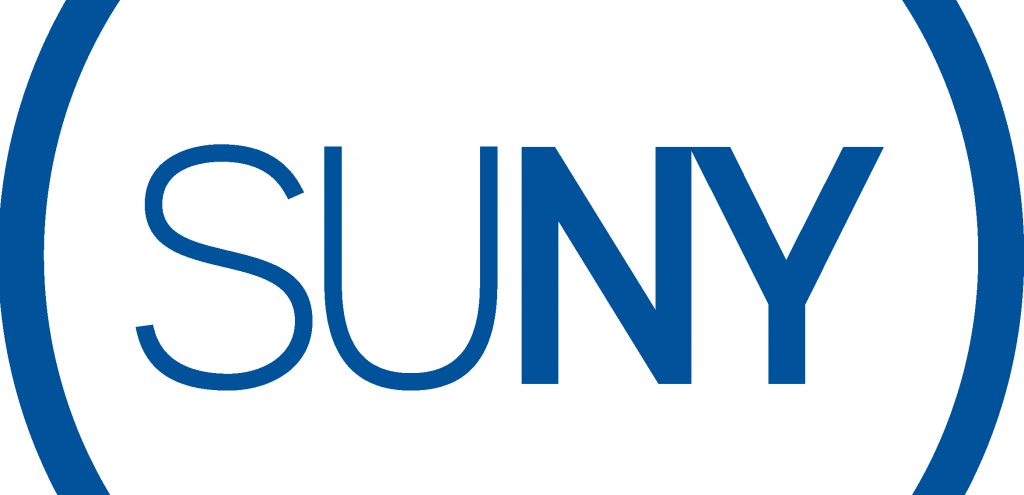By Nancy Scuri
Campus News
In years past, if a student wanted advice about job options, they would head to the guidance counsellor or an instructor who worked in their chosen field. Nowadays, they are more likely to swipe up on their phones. TikTok influencers, in addition to makeup tutorials, viral dance crazes, and off-the-wall challenges, now seem to be having an increased impact on GenZ, especially when making employment decisions.
Recently, Campus News sat down with Amrit Ahluwalia (pictured above). He is senior director of strategic insights at Modern Campus, an educational technology company that provides consulting services thought leaders in education. He is also Editor in Chief of The EvoLLLution, an online newspaper that focuses on non-traditional higher education. (The interview has been edited for clarity and length.)

CN: In regard to Resume Builder’s recent survey regarding Gen Z, Millennials, and their sources of career advice on TikTok, it seems like we’re seeing a mixed bag with half the respondents trusting what they see at least sometimes, and half finding the advice misleading at least sometimes. You mention taking what’s presented with a grain of salt and using other sources of information. What else can we do?
AA: It’s important for job seekers to recognize that TikTok is simply one of many sources of research they can use to support their job search. It’s worth looking at the creator’s profile page to check if they’re selling any kinds of services or represent any particular companies or consultancies. It’s also worth perusing the comments on their videos to check in with “the court of public opinion” on how valid their insights may be. Beyond that, it’s worth seeking out labor market data for more quantitative insights into topics like jobs in high demand or industries experiencing growth. Finally, it’s worth engaging with local Workforce Investment Boards and community colleges or universities to see what kinds of education or development could support a pathway into a new career. In many cases, people are just one or two competencies away from good jobs in sustainable industries—they don’t necessarily need to enroll in entire degree programs. They might just need a certificate, microcredential or badge to show they have the knowledge and skills to succeed.
CN: When watching these creators, how can we sift out the reputable sources versus those who may be misleading us?
AA: At its core, people should trust their senses. If you’re watching a video where the advice seems overly convenient, overly easy or requires any kind of significant investment from the viewer, it’s worth taking a closer look at who’s selling the product, what the product is, and why they’re trying to sell it. This is all part of the digital literacy toolkit every individual should have as social media becomes more commonplace.
CN: The survey mentions that 11% of those asked have paid TikTok creators for career coaching or other services. What questions should we ask before we invest in a program from a TikTok creator, or anyone else for that matter?
AA: First and foremost, it’s valuable to see what kinds of results creators have accomplished for other clients. It’s also worth understanding—in very clear terms—their pricing models and expectations of the client themselves. Especially when it comes to a job hunt, people shouldn’t have an expectation that they’ll achieve amazing outcomes with no effort, regardless of how much money they spend.
CN: In the survey, many of those responding said they paid TikTok influencers for career coaching, and a third of that group paid $1,000 or more for those services. How concerning is this? Especially as 40% found the advice “somewhat useful” or “not very useful.” With the potential for erroneous information and bad actors, how do you see this impacting the platform and those who use it?
AA: It’s always disappointing when people spend significant sums of money but don’t feel they’ve gotten value from that investment. One shift we’ve seen numerous higher education institutions make is introducing robust career data on program pages, that include information on careers that a course or program can prepare the student for, job openings in their area and average salaries for those roles. This gives people a clear sense of the return-on-investment (ROI) they can expect from that course. Career coaching is a little more difficult to put specific outcome expectations around, but it further emphasizes the importance of doing good consumer research before making any investment.
CN: You mention that social media gives employees and college students access to unfiltered commentary from industry leaders. Obviously, this is a good thing, but are there any caveats we should be aware of?
AA: Truly it just comes back to maintaining a sense of digital literacy. Access to infinite opinions on infinite topics is valuable so long as the content is being consumed responsibly. It’s also worth independently researching or verifying facts that are shared in unregulated environments like TikTok to minimize the chances of being misled.
CN: Corporations have long used social media to vet potential new employees. As social media provides more of an inside look into corporate life, what sort of lessons should corporations, recruiters, and HR take from this trend of Gen Z and Millennials looking back at them?
AA: At its core, the growing popularity of TikTok—and the lasting popularity of YouTube—shows that the modern consumer is primarily interested in authenticity and individual connection. Corporations who want to use these channels effectively should ensure that videos they share through these channels are truly unfiltered and provide an authentic window for the viewer.
For more information regarding Modern Campus or The EvoLLLution, Amrit Ahluwalia can be reached via email: aahluwalia@evolllution.com.





Facebook Comments